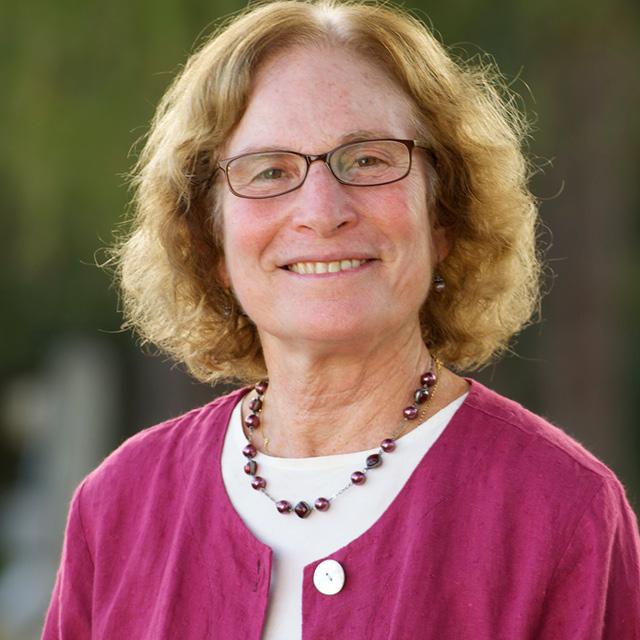
“No One Working for Social Justice Should Expect Their Opponents to Just Go Away”
She’s also pleased with the evolution of the Civil Liberties and Public Policy Program since its founding in 1981. The program presently sponsors an enormous annual conference each spring; offers classes to undergraduates from five western Massachusetts schools—Amherst College, Hampshire, Mt. Holyoke, Smith and the University of Massachusetts—interested in earning a certificate in Reproductive Health, Rights, and Justice; oversees and administers a paid, 10-week Reproductive Rights Activist Service Corp for 35 interns working throughout the U.S.; and publishes an array of materials that promote gender and reproductive justice.
Furthermore, CLPP fills a unique niche, Fried notes, because it integrates community organizing with academics. “Hampshire values its role as a bridge between theory and practice,” she continues. “I actually can’t imagine this link between academia and activism happening in any other university.”
Fried, herself, is the embodiment of these seemingly disparate polarities, and as a seasoned community organizer with a doctorate from Brown University, she makes it look easy to move between the scholarly and the mundane.
She describes her Philadelphia upbringing as “culturally very Jewish.” Her family, she says, did not keep kosher, but nonetheless avoided seafood and pork products. What’s more, she says that her mom and dad “measured everything by whether it was good for the Jews.” But although her parents, aunts and uncles were keenly attuned to anti-Semitism, none of them were politically active.
Not so Fried. As an undergrad, first at Northwestern University and later at the University of Cincinnati, she became heavily involved in the burgeoning New Left and feminist movements. Then, in 1976, when Congress passed the Hyde Amendment and eliminated Medicaid funding for abortion, Fried immersed herself in efforts to protect reproductive health and abortion availability. She joined the Reproductive Rights National Network, called R2N2, and worked to overturn Hyde. On the state level, she joined other feminists to make sure that the state of Massachusetts continued to finance Medicaid abortions using locally generated funds.
The work required persistence, and although the national R2N2 disbanded in the mid-1980s, Boston R2N2 continued its work for another decade. “We tried to push access to the forefront of the agenda of other prochoice groups and even though we were a small organization, we operated in a highly organized manner,” Fried told me. “When the murders happened at the Planned Parenthood League of Massachusetts and Preterm Health Services in the Boston suburb of Brookline in December 1994, we were quickly able to mobilize for clinic defense.”
Interestingly, in the immediate aftermath of the Boston-area killings, the Federal government became increasingly vigilant about enforcing the Freedom of Access to Clinic Entrances Act [FACE], legislation meant to protect clinicians and abortion facilities from anti-choice violence. The bill had been enacted seven months before the Brookline shootings. “FACE gave us a change to regroup and again focus on improving access to care,” Fried said.
The result was the launch of two organizations: The National Network of Abortion Funds (NNAF) and the Abortion Access Project, now called Provide.
“I’d worked with a few others to found an abortion fund in western Massachusetts in 1987 to raise money to help local women who were not eligible for Medicaid pay for their abortions. Sometimes this was because of immigration status. Sometimes it was due to incarceration and sometimes it was because they were slightly over income to qualify for benefits, but were still poor. We also leveraged grants for people in other states, especially those with no Medicaid coverage for abortion. We were focused on equal access to reproductive healthcare. We still raise between $70,000 and $80,000 a year for this purpose.”
Eventually, Fried got in touch with people she knew who were also raising money to pay for abortions—some of whom had been doing so since before Roe v. Wade was decided in 1973. Together they created the National Network of Abortion Funds. Fried is incredibly proud that the 20+-year-old organization has grown to include more than 100 funds throughout the U.S., Canada and Mexico. She served as its executive director—part of her work at CLPP—for a decade and was on NNAF’s board until 2014. She has also worked to promote international reproductive health through the Women’s Global Network for Reproductive Rights and Our Bodies, Ourselves.
Small wonder that this intrepid activist has received numerous commendations, among them the 2014 Felicia Stewart Advocacy Award from the American Public Health Association. A book she authored with Elena Gutierrez, Loretta Ross and Jael Silliman, Undivided Rights: Women of Color Organize for Reproductive Justice was named an Outstanding Book in 2005 by the Gustavus Myers Center for the Study of Bigotry and Human Rights. Not surprisingly, year after year Fried’s students use ratemyprofessors.com to sing her praises.
It’s obvious that Fried loves what she does, enjoys working in a progressive, feminist political milieu, and takes pride in mentoring the next generation of activist scholars. “It’s exciting to me that so many groups and individuals want to be on the justice train,” she says as I ready myself to leave her sun-filled Somerville, Massachusetts kitchen. “Of course, abortion still sucks up a lot of energy, but so much is happening in the R.J. arena. It’s thrilling that tons of diverse young people are engaged and passionate about making lasting social change and are eager to fight for reproductive and sexual justice for every human being.”



